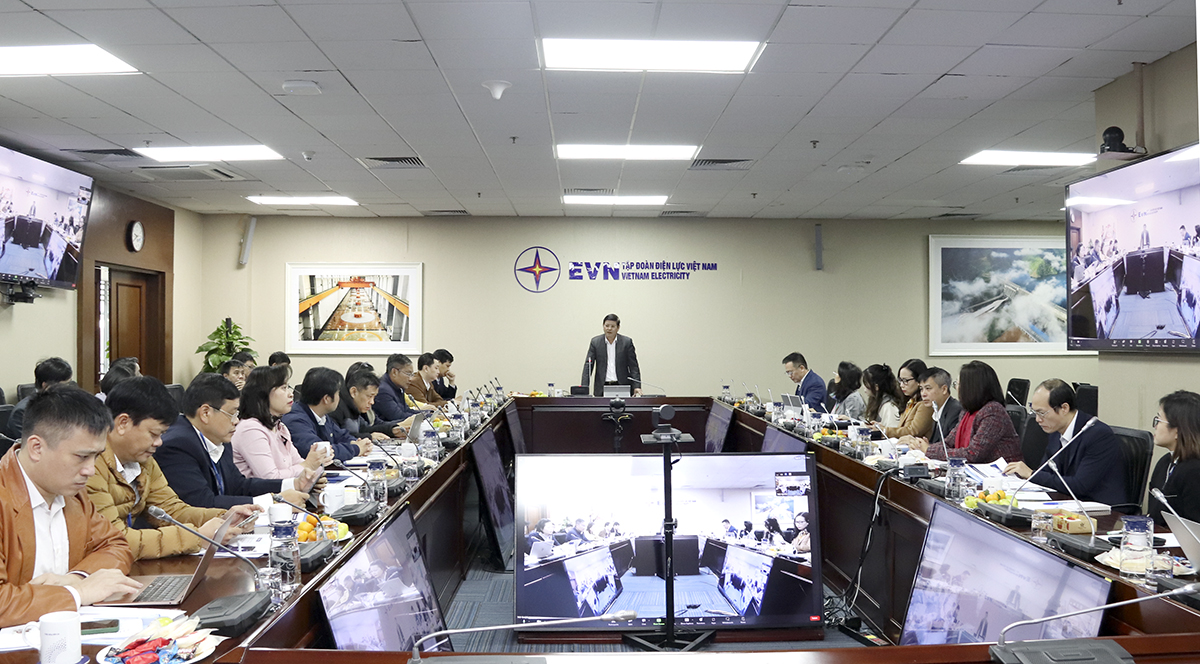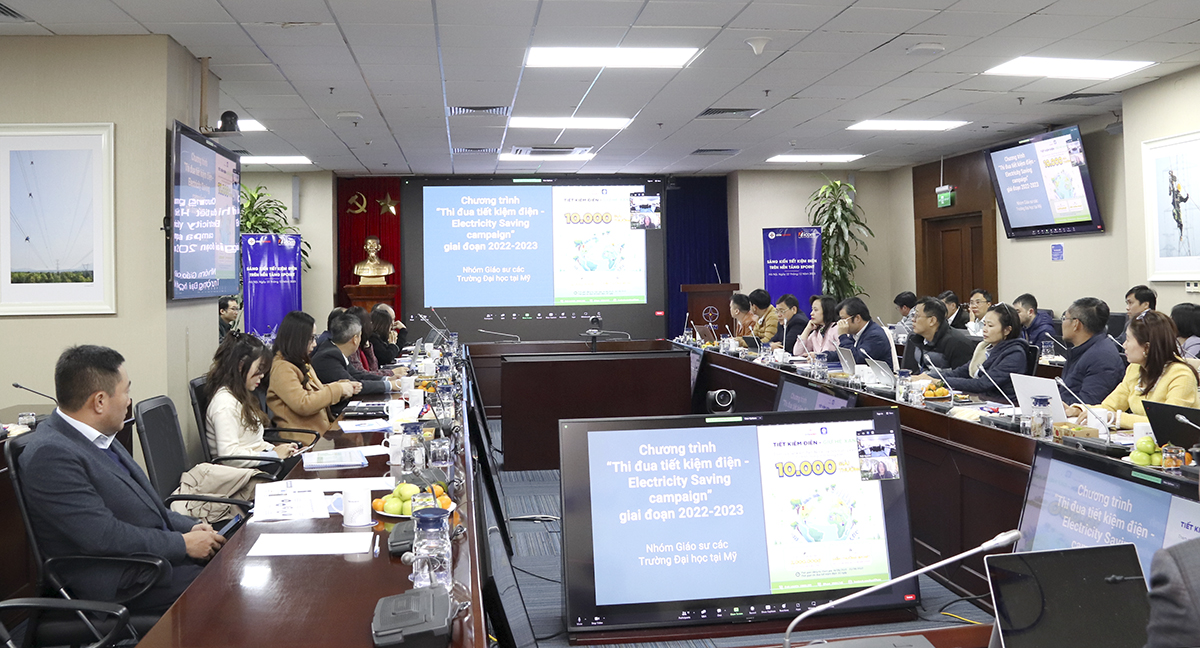Attending the program were representatives of the research team including professors at the University of San Diego (USA) and leadership representatives of five power corporations under the Group.

Director of EVN’s Business Department Nguyen Quoc Dung chairing workshop
In his opening speech, Mr. Nguyen Quoc Dung - Director of EVN’s Business Department, and chairperson of the workshop, said that since 2020, EVN has assigned the task of piloting the EPoint application model to EVNHANOI to create a communication protocol between customers and the power sector. Over more than 3 years, EPoint has not only brought convenience to customers but also supported customers in saving electricity and bringing new experiences to customers.
Through the EPoint application, customers can understand their electricity usage behavior. In parallel, EVN can understand customers' electricity usage behavior so that they can provide timely support and information to customers to create positive changes in the economical and efficient use of electricity.
At the workshop, the International Trade & Investment Joint Stock Company delivered a presentation on analyzing the effectiveness of electricity-saving initiatives on the EPoint platform, and research of professors at the University of Virginia (USA) in changing customers' electricity usage behavior, thereby considering perfecting and replicating this model throughout the Group.
Accordingly, EPoint is a customer care application launched by Hanoi Power Corporation with the mission of bringing technology into practical application of energy efficiency activities, contributing to improving awareness and changing customer behavior of energy efficiency. Besides, EPoint accompanies EVN in improving the electricity consumption experience. Currently, EPoint has 1.3 million users, the rate of customers active on the application daily is 25-30% (150% higher than the market); the customer growth rate in the hot season is 200 - 300%.

A group of professors at University of San Diego (USA) proposing several ideas to promote economical and efficient electricity usage behavior of customers.
EPoint has achieved impressive results in changing electricity usage behavior, contributing to reducing electricity consumption in each household. Typically, EPoint has implemented two electricity-saving programs and achieved remarkable results such as the "Electricity-saving Race 2022" program with 7,588 customers participating, 72.78% of customers saved electricity successfully through the program; "Save Electricity - Keep Summer Green 2023" program with flexible grouping scenarios, diverse reward forms, and values such as electricity payment vouchers and EPoint bonus points, etc. Or "Da Nang IOT Power Saving" program, chaired by Da Nang Department of Industry and Trade and supported by the Central Power Corporation, is considered one of the key programs in 2024.
In the coming time, EPoint aims to expand its ability to develop green and energy-saving programs towards the ZEROCARBON goal; Implement programs according to EVN's goals with creative and diverse scenarios, incentivized with bonus points; Use bonus points to promote the implementation of EVN’s customer-oriented targets such as saving electricity, online payment, awareness improvement, etc.
Evaluating EPoint's leading role in the economical and efficient use of energy, Ms. To Lan Phuong, Head of EVNHANOI’s Business Department, commented that EPoint programs are constantly improved to encourage customers’ participation and better understanding of EVNHANOI's policies. EPoint uses a system to collect and analyze customer behavior on the application, driving communication toward the right target audience. In particular, customers can accumulate bonus points when participating in programs and use EPoint points to redeem incentives from partners in many different fields.
At the workshop, economics professor Ta Lan Chi - representing a group of professors at the University of San Diego (USA) offered some ideas to promote the behavior of using electricity economically and efficiently from electricity customers such as shortening program/competition time; Designing separate programs for each different customer group; Designing programs to encourage customers to reduce consumption during peak hours, peak days, or during emergency events to avoid overload/incidents; Designing programs to tap into the consumption psychology of each different family member with the goal of saving electricity for the household; Designing an electricity-saving program using smart devices, etc.